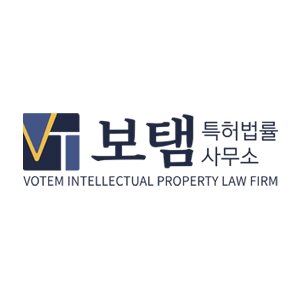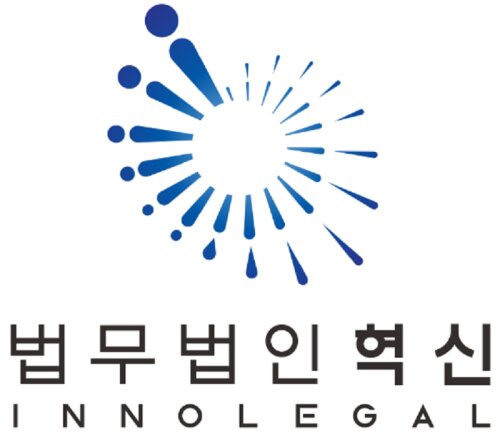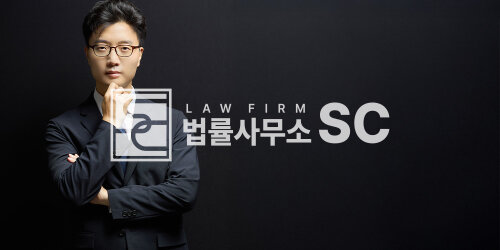Best Venture Capital Lawyers in South Korea
Share your needs with us, get contacted by law firms.
Free. Takes 2 min.
Or refine your search by selecting a city:
List of the best lawyers in South Korea
About Venture Capital Law in South Korea
Venture capital (VC) in South Korea has seen significant growth over the past decade, fueled by government support, a focus on innovation, and a dynamic startup ecosystem. The South Korean government has implemented various policies to encourage VC investment, creating a conducive environment for both local and foreign investors. The country's robust technology infrastructure and highly educated workforce also contribute to making South Korea an attractive destination for venture capitalists. However, navigating the legal complexities of VC investments requires a thorough understanding of specific laws and regulations in the country.
Why You May Need a Lawyer
There are numerous situations where engaging a lawyer is crucial in the realm of venture capital:
- Structuring Investments: To ensure investments are structured in accordance with both investor and startup needs while adhering to legal requirements.
- Negotiating Term Sheets: Professional negotiation of terms to achieve favorable conditions and compliance with local laws.
- Conducting Due Diligence: Legal experts can conduct thorough due diligence to uncover potential risks associated with investments.
- Navigating Regulatory Compliance: To help both investors and startups comply with relevant regulations, including fintech and technology-related policies.
- Resolving Disputes: Assistance with disputes that may arise between stakeholders during investment transactions.
Local Laws Overview
South Korea's venture capital landscape is governed by several key regulations:
- Financial Investment Services and Capital Markets Act (FSCMA): This comprehensive act governs financial investments, including venture capital activities, with a focus on protecting investors and ensuring market integrity.
- Foreign Investment Promotion Act: Provides guidelines and requirements for foreign entities looking to invest in South Korea, offering incentives and protections.
- Start-up Assistance Act: Encourages innovation and investment in startups through various tax benefits and support mechanisms.
- Korea Fair Trade Commission (KFTC): Monitors mergers, acquisitions, and anti-competitive practices, ensuring that VC transactions do not violate competition laws.
Frequently Asked Questions
What is the current state of venture capital in South Korea?
Venture capital in South Korea is vibrant, driven by government promotion of innovation, a robust startup scene, and an increase in both local and foreign investment activity.
Are there any tax incentives for venture capital investments in South Korea?
Yes, the South Korean government offers tax incentives for venture capital investments under various acts, including deductions and exemptions on certain investment returns.
Can foreign investors participate in South Korean venture capital activities?
Yes, foreign investors are welcome and can participate under the Foreign Investment Promotion Act, which facilitates smoother entry and operations in South Korea’s market.
What legal structures are commonly used for venture capital investments?
Common legal structures include private equity funds, limited partnerships, and venture funds specifically tailored to meet regulatory requirements and business goals.
How is intellectual property protection handled in venture capital transactions?
Intellectual property protection is crucial, and due diligence is essential to ensure that all IP rights are secured, which a lawyer can assist with during VC transactions.
What are the primary risks associated with venture capital investments?
Risks include market volatility, regulatory changes, and the inherent uncertainty of startup success, all of which require careful legal evaluation.
Is it necessary to have a local office when investing in South Korean startups?
While not mandatory, having a local presence can be beneficial for navigating local regulations and engaging directly with startups and partners.
How are exits typically managed in South Korean venture capital?
Exits can occur through various means, including IPOs, mergers, or acquisitions. Legal advice is crucial to structure these exits efficiently and legally.
What role does the South Korean government play in VC investments?
The government actively supports VC investment through policies, funding, and incentives designed to enhance the ecosystem's growth and innovation.
How to ensure compliance with South Korean venture laws?
Investors and startups should work closely with legal experts familiar with South Korean regulations to ensure all activities comply with the relevant laws.
Additional Resources
For further assistance, consider the following resources:
- The Korean Venture Capital Association (KVCA): Provides information, networking opportunities, and support for the VC industry.
- Ministry of SMEs and Startups: Offers guidance and information regarding government initiatives in promoting startups and SMEs.
- Korea Venture Investment Corp (KVIC): Focuses on promoting venture capital investments through various programs and initiatives.
Next Steps
If you need legal assistance in venture capital in South Korea, consider the following steps:
- Research and Identify Law Firms: Look for law firms with a specialization in venture capital within South Korea.
- Schedule Consultations: Arrange initial consultations to discuss your specific needs and how they can assist you.
- Verify Credentials: Ensure that the legal professionals you select have the requisite experience and expertise in VC law in South Korea.
- Engage a Lawyer: Once satisfied, engage a lawyer to provide ongoing advice, negotiate on your behalf, and help navigate legal complexities.
Seeking expert legal advice will help secure your investments and ensure compliance with South Korean venture capital laws.
Lawzana helps you find the best lawyers and law firms in South Korea through a curated and pre-screened list of qualified legal professionals. Our platform offers rankings and detailed profiles of attorneys and law firms, allowing you to compare based on practice areas, including Venture Capital, experience, and client feedback.
Each profile includes a description of the firm's areas of practice, client reviews, team members and partners, year of establishment, spoken languages, office locations, contact information, social media presence, and any published articles or resources. Most firms on our platform speak English and are experienced in both local and international legal matters.
Get a quote from top-rated law firms in South Korea — quickly, securely, and without unnecessary hassle.
Disclaimer:
The information provided on this page is for general informational purposes only and does not constitute legal advice. While we strive to ensure the accuracy and relevance of the content, legal information may change over time, and interpretations of the law can vary. You should always consult with a qualified legal professional for advice specific to your situation.
We disclaim all liability for actions taken or not taken based on the content of this page. If you believe any information is incorrect or outdated, please contact us, and we will review and update it where appropriate.
Browse venture capital law firms by city in South Korea
Refine your search by selecting a city.















